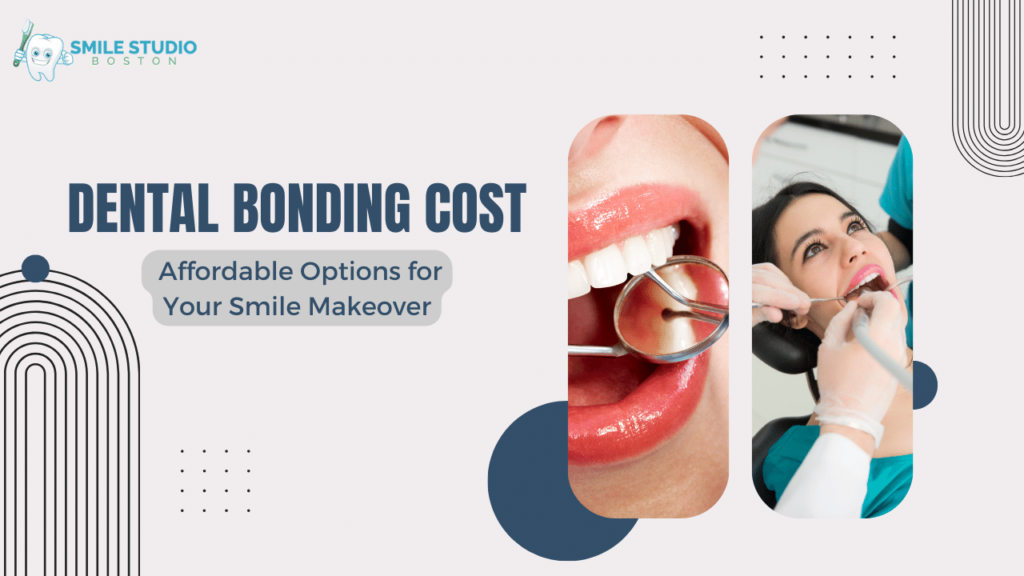Dental Bonding Cost:
Dental bonding is a popular cosmetic and restorative procedure that has gained significant attention in the field of dentistry. This procedure involves the application of a tooth-colored composite resin to the affected teeth to enhance their shape, size, or color. It’s a versatile solution that can address a variety of dental issues, including chips, cracks, discoloration, and even small gaps between teeth.
One of the key advantages of dental bonding is its cost-effectiveness. The cost of dental bonding typically ranges from around $100 to $500 per tooth. However, this can vary based on factors such as the dentist’s location, the extent of the treatment, and the dentist’s skills and expertise. Despite these variables, dental bonding remains a more affordable option compared to other dental treatments like veneers and crowns.
It’s important to note that while the dental bonding cost is relatively lower, it doesn’t compromise the quality of the results. Dental bonding can effectively restore the aesthetics and function of the teeth, providing patients with a renewed sense of confidence in their smiles.
In the following sections, we will delve deeper into the process of dental bonding, its benefits, and why it’s a preferred choice for many patients seeking to improve their smiles. Stay tuned!
Also Read: See the Difference: Cosmetic Dental Bonding Before and After Photos
What Influences Dental Bonding Cost?
Material and Procedure Complexity: The dental bonding cost is influenced by the type of material used and the complexity of the procedure. Dental bonding involves the application of a tooth-colored composite resin to the affected teeth. The cost can vary based on the extent of the treatment needed, the number of teeth being treated, and the severity of the damage or discoloration. Typically, you can expect to pay around $100 to $500 per tooth, but this can extend to $1,000 per tooth depending on the complexity and extent of the bonding process.
Geographic Location: The location of the dental clinic also plays a significant role in determining the dental bonding cost. Costs can vary based on the dentist’s location and the local cost of living. For example, a procedure in Phoenix, AZ may be different from one in Newark, NJ.
Dentist’s Expertise: The expertise of the dentist is another factor that can influence the dental bonding cost. Experienced dentists may charge more due to their expertise and the quality of their work. A reputable dentist will use high-quality resin, ensuring your bonding lasts longer and remains aesthetically pleasing.
It’s important to note that while the dental bonding cost can vary based on these factors, dental bonding remains a cost-effective solution for many dental issues. It’s always a good idea to discuss these cost variables with your local dental practitioners to have a clear understanding of all the fees involved before committing to the procedure.
Also Read: Exploring Cosmetic Treatments: What is Dental Bonding and How Does It Work?
Insurance and Dental Bonding
Insurance coverage for dental bonding cost can vary widely. While dental bonding is often viewed as a cosmetic procedure, some insurance plans may cover it if deemed medically necessary. For instance, if the bonding is required to repair a broken or chipped tooth, your insurance company may cover some of the costs. However, it’s important to check with your insurance provider to understand the extent of coverage for dental bonding, as some providers may not cover any of the cost if they view dental bonding as purely cosmetic.
Saving on Dental Bonding Without Insurance
If you don’t have insurance, there are still ways to manage the dental bonding cost:
Dental Savings Plans: Dental savings plans, also known as dental discount plans, can significantly reduce the cost of dental bonding. These plans are a type of membership where you pay a yearly fee (around $150) and in return, you receive discounted dental services. This can make dental bonding more affordable for those without insurance.
Dental Schools: Dental schools can be a source of quality, low-cost dental treatment. Most dental schools run clinics where students provide dental services at reduced prices, sometimes even for free. The treatments are closely supervised by experienced and licensed dentists, ensuring quality care.
Payment Plans: Another option is to organize a dental payment plan with your dental clinic or a third-party healthcare finance company. These plans allow you to spread the cost of the treatment over a period of time, making it more manageable.
Remember, it’s always a good idea to discuss these options with your dentist or dental clinic to find the most cost-effective solution for your dental bonding needs.
Also Read: Why Does My Tooth Filling Hurt After Months: 10 Possible Causes
Procedure Overview
The dental bonding procedure is a straightforward and non-invasive process that typically involves the following steps:
1. Preparation: The dentist selects a shade of composite resin that closely matches the color of your natural teeth.
2. Application: The surface of the tooth is roughened, and a conditioning liquid is applied to help the bonding material adhere to the tooth. The dentist then applies the composite resin, which has a putty-like consistency.
3. Molding and Shaping: The dentist molds and shapes the resin to the desired shape.
4. Curing: The dentist uses an ultraviolet light or laser to harden the material.
5. Finishing: After the material is hardened, the dentist further trims and shapes it, then polishes it to match the sheen of the rest of the tooth surface.
Maintenance and Longevity
With proper care, dental bonds can last up to 8 years. Here are some tips for maintaining dental bonding and extending its life:
- Maintain good oral hygiene by brushing at least twice a day and flossing daily.
- Avoid hard food and candy that can chip the bonding material.
- Limit consumption of coffee, tea, red wine, and other substances that can stain the resin.
- Schedule regular dental cleanings and check-ups every six months.
Dental bonding is a cost-effective and versatile solution for various dental issues, from chips and cracks to discoloration and gaps. It not only improves dental aesthetics but also boosts confidence by enhancing your smile. With its non-invasive nature and the relatively low dental bonding cost, it has become a popular choice for many patients. If you’re considering dental bonding, we encourage you to consult with your dentist to explore this option and see if it’s the right fit for you. Remember, a confident smile is always in style!
Also Read: How Do Dental Implants Work? Insights into Effective Tooth Replacement
Transform Your Smile Today with SmileStudio!
At SmileStudio, we believe everyone deserves a smile they’re proud to share. Whether you’re looking for routine dental care, cosmetic enhancements, or advanced treatments, our team of experienced professionals is here to guide you every step of the way.
Why Wait? Book Your Appointment Now!
1. Expert Team: Our team of highest rated dentists and dental professionals are committed to providing the highest standard of care. Whether you’re looking for a crown dentist, an implants dentist, or veneers dentist, our team has the expertise to meet your needs.
2. Flexible Payment Options: We believe that everyone should have access to quality dental care. That’s why we offer flexible payment plans to fit your budget.
3. Emergency Dental Care: Dental emergencies don’t always happen during office hours. That’s why we offer emergency dentist services to provide immediate care when you need it most.
4. Walk-In Appointments: We understand that life can be unpredictable. That’s why we offer walk-in appointments at our walk-in accepted dental office to accommodate your busy schedule.
5. Accepting MassHealth: At SmileStudio, we believe in making dental care accessible to everyone. That’s why we’re a dentist that accepts MassHealth, ensuring that you can get the care you need, regardless of your insurance plan
Remember, at SmileStudio, your smile is our priority. We’re here to provide comprehensive dental care tailored to your individual needs.

Take the First Step Towards a Brighter Smile!
Don’t let another day go by without giving your smile the attention it deserves. Contact SmileStudio today to schedule your appointment. Whether you’re a new patient or returning, we’re excited to help you achieve the smile of your dreams.
📞 Call Us: +1 (617) 265-5606
📧 Email Us: smilestudioboston@gmail.com
🌐 Visit Our Website: https://smilestudioboston.com/
📍 Find Us: 1428 Dorchester Ave, Dorchester, MA 02122, United States

SmileStudio – Where Beautiful Smiles Begin. Join us on your journey to a healthier, more radiant smile. Book your appointment now!
FAQs
1. Is dental bonding worth it?
Dental bonding is worth considering depending on your specific circumstances and goals. It is a cost-effective solution compared to other dental procedures like veneers or crowns. If you have a tight budget but still want to improve your smile, dental bonding may be right for you. However, it’s important to note that while dental bonding is generally safe, it does have risks and potential complications. It’s always best to discuss all of your treatment options with your dentist to understand which options are right for you.
2. Is bonding cheaper than veneers?
Yes, dental bonding is typically less expensive than veneers. The cost of dental bonding typically ranges from around $100 to $500 per tooth, whereas veneers typically cost $250–$1,500 per tooth. However, it’s important to note that while dental bonding is less expensive, it may not last as long as veneers.
3. How long does bonding last on teeth?
The lifespan of dental bonding can vary, but on average, it lasts between 3 to 10 years. The longevity of dental bonding depends largely on maintaining good oral health and avoiding damaging the bonded teeth. It’s also important to note that the lifespan can be influenced by the location of the bonding, the quality of the bonding material used, and the health and strength of the teeth.
4. How much is dental bonding for gap teeth?
The cost of dental bonding for gap teeth typically ranges from around $300 to $600 per tooth. However, the price can vary based on factors such as the dentist’s location, the extent of the treatment, and the dentist’s skills and expertise.
5. What happens after 5 years of composite bonding?
After 5 years, composite bonding may show signs of normal wear and tear. The composite material used in bonding can become stained or discolored over time, especially if you consume staining foods or drinks like coffee, tea, or red wine. In some cases, small chips or cracks may develop in the bonded areas. To maintain the appearance and functionality of your bonded teeth, you may need occasional touch-up treatments.
6. What is the disadvantage of dental bond?
One of the main disadvantages of dental bonding is that the material used is not as durable or long-lasting as other restorative options, such as veneers or crowns. The composite resin used in bonding is not as strong as your natural teeth, so it can wear down, chip, or break over time. Additionally, the bonding material is not as stain-resistant as other dental materials, so it may discolor over time if you smoke or drink a lot of coffee.



Pingback: Boston Dental Bonding: Best Clinics, Real Costs, Fast Results • Porto Salute